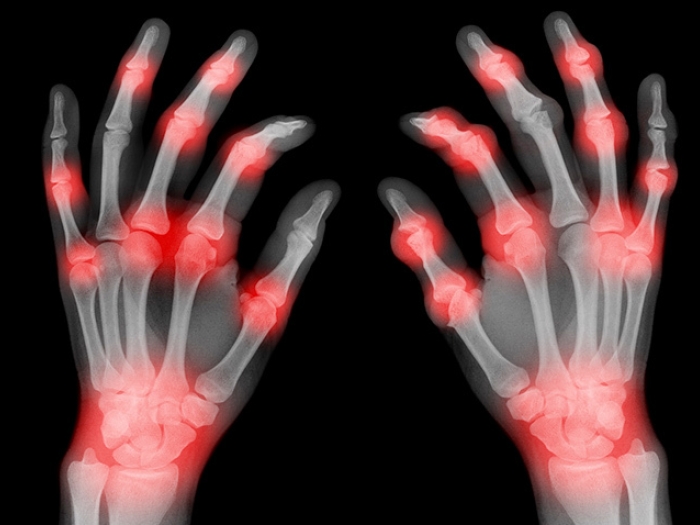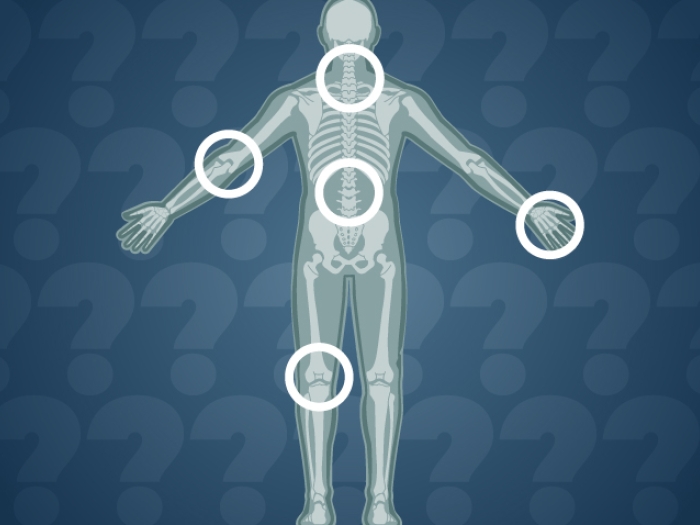Being overweight can affect your heart rate and breathing — and it can tax your joints. A U-M rheumatologist explains why, and what you can do.
1:00 PM
Author |

Joints, or the areas where two bones meet, are an important part of a person's ability to move. Many feel aches and pains in these spots, with weight as a possible contributing factor.
SEE ALSO: Physical Therapist: No Solid Research on Cupping's Effect
"Being overweight accelerates osteoarthritis in the individual's hips and knees," says Timothy Laing, M.D., associate professor of internal medicine and a rheumatologist at the University of Michigan Comprehensive Musculoskeletal Center. "Maintaining a healthy weight, or losing weight if they are already overweight, will help slow down the advancement of osteoarthritis."
Laing explains that once osteoarthritis begins, wear and tear because of weight will accelerate its progression. Once the cartilage in joints is worn down, it cannot regrow.
Here, Laing answers common questions patients should know about joint health and joint replacement surgery.
What are some things patients can do at home to improve their joints?
Laing: I always recommend to patients that they keep their weight under control by eating a balanced diet and trying to achieve as much aerobic fitness as possible. As mentioned above, weight is a large contributing factor to osteoarthritis, so making sure an individual is maintaining their weight will greatly help.
What are some of the first-line treatment options you suggest to patients?
Laing: Other than joint replacement surgery, some patients benefit from cortisone injections into the affected joint, and others feel relief of their pain from anti-inflammatory medications, such as Advil or Aleve. Unfortunately, neither of these options will slow down the arthritis.
When should a person seek out an appointment with a rheumatologist?
Laing: A rheumatologist should be consulted for joint pain that does not seem to respond to reasonable doses of anti-inflammatory medications.
What is joint replacement surgery, and when should someone consider it? Does weight make a difference?
Laing: Joint replacement surgery is when the entire injured joint is replaced with metal and plastic components. The newest versions of hip and knee replacements can last 20 years or more.
SEE ALSO: 3 Treatments for Tennis Elbow and Other Types of Tendinopathy
Surgery is generally considered once a joint has worn out and the patient is experiencing chronic pain and loss of function.
The surgery is fine for most people, including those that are overweight. But being severely overweight, meaning they have a body mass index of 35 or more, the rate of surgical complications goes up significantly and can wear out the replacement faster.
Who is most at risk of needing joint replacement surgery?
Laing: Generally, hip and knee replacements are most common for older adults with osteoarthritis. But if you find you are having extensive pain, be sure to talk to your rheumatologist about a treatment plan that's best for you.

Explore a variety of health care news & stories by visiting the Health Lab home page for more articles.

Department of Communication at Michigan Medicine
Want top health & research news weekly? Sign up for Health Lab’s newsletters today!





